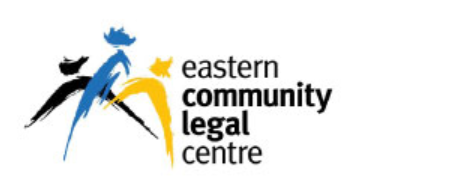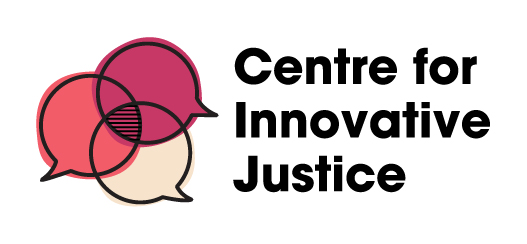December 2023 More CIJ Newsletter Stories!
Delivering key insights into Online Courts with Court Services Victoria

In March of this year, the CIJ embarked on an ambitious new project on Online Courts, commissioned by Court Services Victoria. With the increasing use of technology in the justice system, brought about in part by the COVID-19 pandemic, the project explores the experience of online hearings in Victoria and insights gained from their use in recent years. The project presents a great opportunity to consider how the benefits of online hearings can be built on in the future and how the foundational elements of the justice system can be strengthened within an online environment. The wide-ranging project spans multiple courts and includes a number of streams that delve into the different aspects of online hearings.
Since the project began the CIJ has engaged a broad spectrum of justice system stakeholders in over 60 consultations, including with lawyers, judicial officers, court staff and support practitioners. A survey, which received over 700 responses, was launched for a 3-week period in October to capture the experiences of these groups. Practical learnings have been complemented by a review of international and domestic literature and practice guidance on online courts.
The project will continue into 2024. The CIJ will next focus on conducting court observations, a quantitative data analysis, and importantly, directly engaging with court users to understand their experiences of online courts. The project will remain focused on developing practical approaches that enhance the delivery of online hearings so that these remain a positive and critical innovation in Victorian courts and tribunals.
———————————————————————————————————————————–
Spotlighting the experiences of unaccompanied young people with Lived Experience Experts and Melbourne City Mission

Since securing one of the Victorian Government’s Family Violence Research Grants in July of this year, the CIJ – along with our project partners Melbourne City Mission (MCM) – have hit the ground running with their Unsafe and Unseen: spotlighting unaccompanied children and young people seeking shelter project.
This project aims to bring deeper understanding about and service attention to a normally invisible group – young people who flee family violence without a protective parent, often becoming homeless or living in unsafe housing as a result. The project builds on the significant amount of research and advocacy MCM have conducted in this area.
In the last couple of months, the CIJ and MCM have begun working with a group of Lived and Living Experience experts. This group of young people are providing direction and guidance to the project team to design a strengthened approach for our work with children and young people. Over a number of sessions, the group have shared key insights into the often-inaccurate assumptions made by the system about how, when and why young people seek support for family violence, and the compounding harm that can be inflicted on young people as a result.
Concurrent to this process, the CIJ have also commenced engagement with a Practice Advisory Group, who will be contributing their expertise across the research project.
The most exciting aspect of this project is the inclusion of young people not just as participants of the research, but as the experts and architects. On that note, we’d like to finish with a reflection from one of the Lived and Living Experience Experts about her engagement with the project so far, and the importance of embedding lived experience in all aspects of system reform:
“Whilst still in the early stages of this project, this team of researchers and advocates have created a beautiful bond and space to share lived experience. All participants are open and vulnerable. One thing everyone shares in the room is passion, and a drive to create change. Embedding lived experience within the sector is equally as important as expert opinion. Lived experience can highlight gaps in the system that experts don’t experience or maybe can’t see. That is why this work is so important.” – Danni, Lived and Living Experience Expert.

———————————————————————————————————————————–
Groundbreaking research into the impacts of COVID-19 on service responses to family violence
On Friday 15 September, we launched the report for Future-proofing Safety, a multi-year project exploring how services across Victoria responded to family violence during the pandemic. Funded by Family Safety Victoria, the project was led by the Centre for Family Research and Evaluation (CFRE) at Drummond Street Services and delivered in partnership with the CIJ and the Australian Institute of Family Studies (AIFS), as well as sector partners GenWest and Good Shepherd.
The project adopted a system-wide lens, recognising that conventional entry points to support, as well as conventional approaches to service delivery, fell away during COVID-19 as practitioners scrambled to meet increased demand from a population in crisis.
As part of this research, the CIJ conducted focus groups with 132 practitioners; reviewed 70 MARAM risk assessment tools and associated safety plans; and conducted interviews with 26 service users to understand their experiences seeking, accessing and receiving support during COVID-19.
A key finding across the research was the increase in the number and the complexity of client presentations during COVID-19, with numerous examples of how this played out for clients unable to access timely and responsive services. The research also highlighted changes to the nature of family violence during the COVID-19 period. Alarming new forms of violence were observed, including the weaponising of the virus itself and the associated public health restrictions.

While adaptations in service delivery and scope, such as the shift to telehealth appointments and increased use of brokerage funding to respond to rising material need, enabled practitioners to respond to an evolving crisis, COVID-19 also surfaced pressure points and service gaps across the family violence and wider service system. Practitioners identified barriers to accessing support as long waitlists developed and key services withdrew, with reports of housing services shutting down their phone service in the face of overwhelming demand. Practitioners also noted a significant reduction in the presence of Child Protection officers.
A key recommendation from the study is for government investment in systems and infrastructure – including data capture, analysis, and implementation of evidence-based responses – to strengthen sector capacity to respond to future crises. Understanding that community-wide disasters result in increases in the incidence, complexity and acuity of family violence, the project also provides a framework for crisis readiness which aims to future-proof Victoria’s family violence service system and ensure that the needs of the most vulnerable members of the community are recognised in any crisis response.
———————————————————————————————————————————–
CIJ staff present keynote address at conference on restorative justice in Perth
Earlier this month, Renee Handsaker and Nareeda Lewers delivered the keynote presentation at a conference on restorative justice, organised by the Western Australian Commissioner for Victims of Crime, Kati Kraszlan. Nareeda and Renee spoke about Open Circle’s victim survivor focused restorative justice program, and shared a case study of a recent restorative process facilitated by Open Circle, in which a victim survivor met face to face with the personal responsible. It is clear that there is strong momentum around growing victim-focused restorative practice in Western Australia, with the Western Australian Commissioner for Victims of Crime actively championing this cause. Other eminent speakers at the conference, including Hon. Matthew Dean Swinbourn, Parliamentary Secretary to the Attorney General; Director General of the Department of Justice, Dr Adam Tomison; and Western Australian Commissioner for Equal Opportunity Dr John Byrne AM all spoke passionately about the importance of restorative approaches within the justice landscape. The CIJ is very grateful to have been invited to contribute to the conversation, and looks forward to future collaboration with our Western Australian friends.
———————————————————————————————————————————–
Student Placements
The CIJ’s community legal centre (CLC) partners, the Law and Advocacy Centre for Women and Youthlaw, had another great year offering life changing placements to RMIT’s social work and law students in 2023.

Law students, from the JD and undergraduate program, gained invaluable experience across both clinical and project placement opportunities at both CLCs.Social work students (who are required to complete two 500 hour placements before graduating) were also offered unique and high quality placements, in both client facing and project roles. Some examples of this include two students, Sarah Bostock and Paige Gilchrist, who worked within LACW’s case management team to support criminalised women with complex support needs. During placement, students were able to attend court (Magistrates, County and Supreme), write court support letters, complete referrals to other services such as housing and AOD services, source emergency accommodation, and gain experience in other forms of crucial advocacy. Lauren Dinsmore, who was placed with the Women’s SupPORT Pathways Project, was able to support the project team to link criminalised women to sports and recreational clubs and groups, including running activity days within Tarrengower Prison and in the community. The project team also provided training and support to sport and rec clubs around areas such as trauma informed practice, as well as providing ongoing support and information for current and prospective project participants.
My placement at LACW has been the highlight of my Masters so far and was such an incredible learning opportunity. Working with the case management team offered me unique insights into integrated practice and applying trauma informed practice in meaningful ways. The placement has made me passionate about working with criminalised people as a social worker and using the power our profession has to imagine alternatives to the carceral system. Sarah Bostock – LACW case management FE1 social work student
My placement at the Law and Advocacy Centre was an insightful and humbling opportunity for me to explore human services and how it can integrate with community law. As an international student, I had very little experience with the Victorian legal system – learning from the case managers and lawyers at LACW was collaborative and dynamic, and I have come away with a more confident understanding. I feel a huge gratitude toward the women who sought support from LACW to also work with me as a placement student. I am so appreciative for the time and trust they shared with me. Paige Gilchrist – LACW case management FE1 social work student
During this placement, I was able to develop my understanding of the unique support needs of women in the justice system, as well as engage in critical reflections and discussions to challenge identified bias along the way. I have learned about evaluation outcomes and the importance of knowing the aim and purpose of a project. I was fortunate to see how LACW supports Aboriginal and Torres Strait Islander people, as well as understand the importance of ensuring the Court is aware a person identifies as a First Nations person. We were also able to engage with group supervision, peer supervision and individual supervision – each an opportunity to have discussions, seek feedback and unpack thoughts, feelings and reflections. Lauren Dinsmore – LACW WSPP FE2 social work student.
The CIJ would like to thank LACW and Youthlaw for continuing to provide such brilliant opportunities for RMIT students, as well as congratulate all students on completing their placements, especially those who have now completed their studies!

———————————————————————————————————————————–
Smart Justice for Women policy platform launch

On Thursday December 7, members of the CIJ’s Research Advocacy and Policy team had the privilege of attending the launch of the new policy platform of Smart Justice for Women (SJFW), a coalition of agencies and individuals committed to ending the criminalisation of women in Victoria. The policy provides a blueprint for criminal justice reform that responds to the unique needs of women, prioritising urgent investment in affordable housing and health and social services.
We heard from an impressive panel of advocates including Professor Eleanor Bourke (Chair, Yoorook Justice Commission); Ellie Papas (CEO of the Law and Advocacy Centre for Women); Lyanne Morel (Lived Experience and Systemic Reform Advocate at Taskforce); Nina (Family Violence and Justice Project Coordinator at Flat Out); Fiona Patten (leader of the Reason Party); and Tania Farha (CEO, Safe and Equal).
The two panel members with lived experience of the justice system provided compelling examples of how criminal justice involvement exacerbates the trauma and disadvantage associated with women’s pathways to prison, and the supports women and their children need to prevent its intergenerational impacts.
———————————————————————————————————————————–
Supporting AFMs in family violence remote hearings
Building on evaluation learnings from 2022, the CIJ and Clear Horizon began the final stage of the evaluation of the Remote Hearing Support Service (RHSS) in early 2023. This phase involved multiple strands of data collection, including interviews and surveys with Affected Family Members (AFMs), an analysis of case studies, a literature scan about the use of support for remote hearings for victim survivors of family violence, and the development of live dashboards incorporating quantitative court data. The evaluation team delivered a final report to the Magistrates’ Court of Victoria in July 2023.

———————————————————————————————————————————–
Integrated Practice and Family Violence Roundtable

On 30 October 2023, Riley Ellard and Kat Ogilvie from CIJ attended the Integrated Legal Practice Family Violence Roundtable, hosted by Eastern Community Legal Centre. The roundtable considered the role of integrated legal services – lawyers working alongside other professionals such as social workers, nurses and financial counsellors – in addressing the structural and systemic barriers for people impacted by family violence.
The event was attended by around 50 sector leaders in integrated practice from across Victoria. Participants heard from an experienced and animated panel, which included contributions from the Hon. Justice Jennifer Coate, campaigner Rosie Batty, survivor-advocate Martina Eaton and was moderated by Maria Dimopoulos.
Breaking into smaller discussion groups, attendees workshopped strategies, solutions and recommendations for the broader sector to consider and progress. The themes explored included ways of reimagining the integrated service system and funding models; working with Aboriginal and Torres Strait Islander women, children and families; issues accessing legal assistance and the barriers to justice; the links between family violence, homelessness and housing security; and the integral role of multidisciplinary practice and integrated practice.
These discussions highlighted clear synergies with the principles that inform the CIJ’s work, and in particular, the need to:
- centre the voices of people with lived experience, while ensuring not to over-burden survivor-advocates;
- address systemic racism in the family violence service sector, particularly for First Nations victim survivors;
- recognise the importance of multidisciplinary and integrated practice approaches in supporting people with complex support needs;
- acknowledge the positive impact of clinical placements for law and social work students to break down barriers and grow understanding between the professions; and
- promote the importance of education around trauma-informed practice, both at a sector and tertiary education level.
The CIJ is a member of the Advisory Group for this important project and looks forward to continuing to work with ECLC and the sector to progress solutions and thinking around what we want Victoria’s family violence service system to look like and how to build towards that.
———————————————————————————————————————————–


